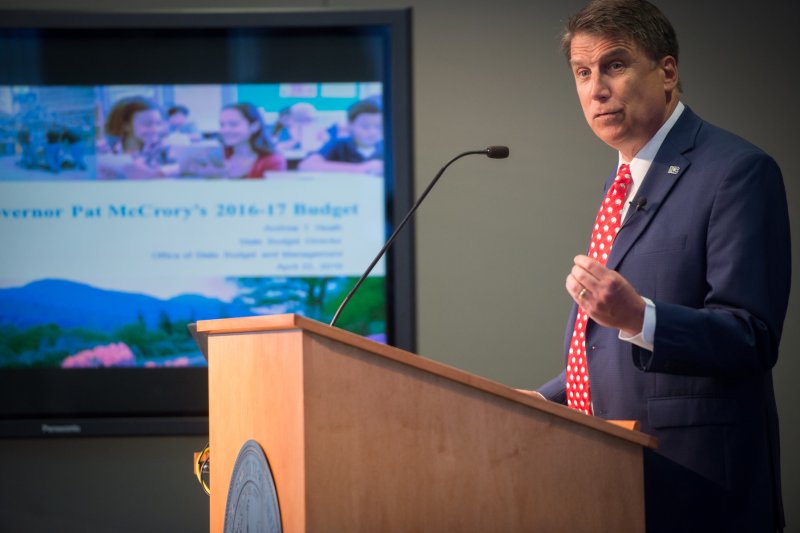RICHMOND, Va., Aug. 6 (UPI) -- North Carolina Gov. Pat McCrory said his state will petition the U.S. Supreme Court to intervene and reinstate a voter identification law that was struck down by the Fourth Circuit Court of Appeals, which said the law discriminated against minorities.
After overturning the North Carolina law, which requires voters to show a form of state-issued photo identification before voting and also cuts down on the amount of time allowed for early voting, the Fourth Circuit also refused to stay its order pending an appeal to the Supreme Court.















